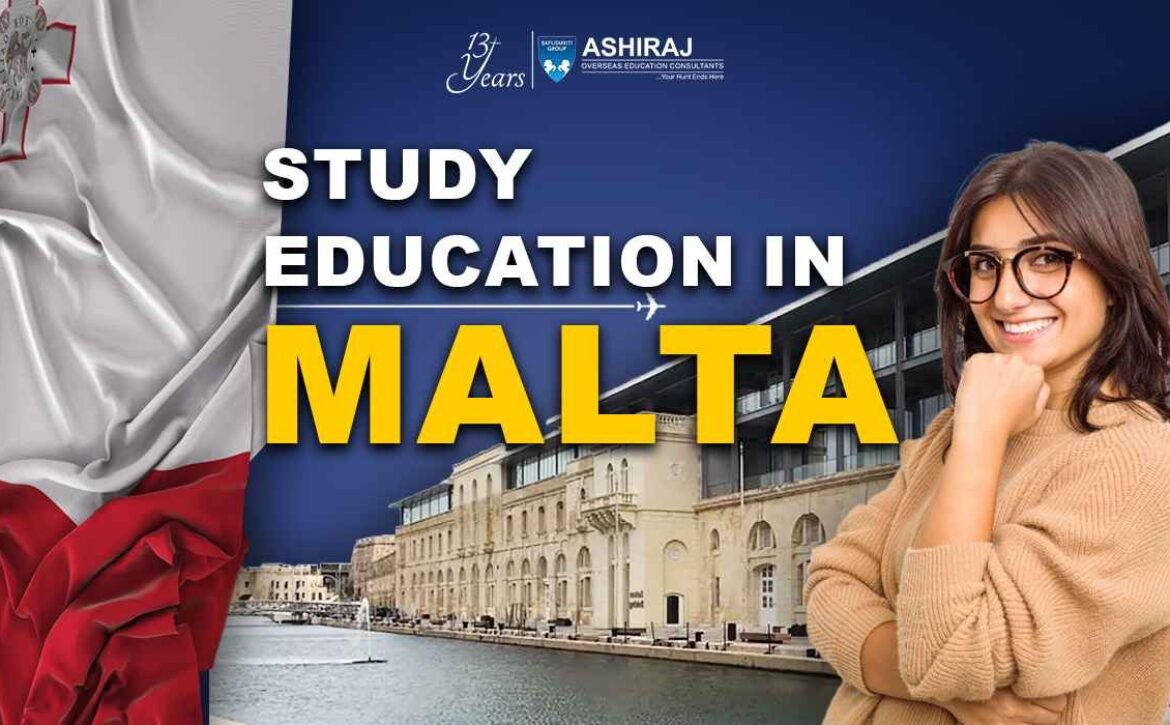
Education in Malta
Malta, a picturesque Mediterranean island nation, boasts a robust education system that reflects its rich cultural heritage and commitment to academic excellence. Education in Malta encompasses a comprehensive framework from early childhood to tertiary levels, ensuring accessibility and quality for all learners. With a blend of traditional values and modern pedagogical approaches, Malta’s educational institutions strive to foster critical thinking, creativity, and a strong sense of civic responsibility among students.
Education in Malta encompasses a diverse range of options, including public, private, and religiously affiliated schools, each contributing to the nation’s educational landscape. From primary education focused on foundational skills to secondary education preparing students for further studies or vocational paths, Malta offers a well-rounded educational experience. Furthermore, Malta’s higher education sector continues to expand, with universities and vocational institutions providing opportunities for academic advancement and skill development in alignment with global trends and industry demands. With a commitment to inclusive education and continuous improvement, Malta stands as a beacon of educational excellence in the Mediterranean region and beyond.
Why to Study Education in Malta?
- Diverse Cultural Experience: Education in Malta offers students the opportunity to immerse themselves in a vibrant Mediterranean culture, enhancing their learning experience beyond the classroom.
- Quality Institutions: Malta boasts high-quality educational institutions, both public and private, with a strong emphasis on academic excellence and student support services.
- Multilingual Environment: With English as one of its official languages, studying in Malta provides students with the advantage of learning in a multilingual environment, enhancing their language skills and global competitiveness.
- Affordable Education: Compared to many other European countries, the cost of education in Malta is relatively affordable, making it an attractive destination for international students seeking quality education without breaking the bank.
- Strategic Location: Situated at the crossroads of Europe, Africa, and the Middle East, Malta’s strategic location provides students with opportunities for cultural exchange, networking, and career prospects in a globalized world.
- EU Membership: As a member of the European Union, students studying in Malta benefit from EU regulations and support schemes, facilitating mobility, recognition of qualifications, and access to funding opportunities.
- Innovative Teaching Methods: Maltese educational institutions are known for their innovative teaching methods, incorporating technology and experiential learning to prepare students for the challenges of the 21st-century workforce.
- Rich History and Heritage: Studying in Malta offers students the chance to explore a rich historical and cultural heritage, providing a unique backdrop for academic pursuits and personal growth.
- Strong Industry Connections: Malta’s education system maintains strong connections with industry, offering students opportunities for internships, work placements, and networking events to enhance their employability upon graduation.
- Supportive Student Community: With a welcoming and supportive student community, studying in Malta ensures a fulfilling and enriching experience both academically and socially.
Overall, studying education in Malta presents a myriad of benefits, making it an ideal destination for those seeking a high-quality and culturally enriching academic experience.
Top Universities to Study Education in Malta
University Name | QS World University Rankings 2023 | Type of University | Average Annual Fees (EUR) | Programs Offered |
University of Malta | Not ranked | Public | 1,000 – 8,000 | Undergraduate, Postgraduate, PhD |
Malta College of Arts, Science & Technology (MCAST) | Not ranked | Public/Technical | 1,000 – 5,000 | Vocational, Undergraduate |
American University of Malta | Not ranked | Private | 9,000 – 12,000 | Undergraduate, Postgraduate |
Global College Malta | Not ranked | Private | 6,000 – 10,000 | Undergraduate, Postgraduate |
Institute of Tourism Studies | Not ranked | Public | 1,500 – 3,500 | Vocational, Undergraduate |
Education in Malta offers a range of opportunities through its top universities, providing quality education across various disciplines. The University of Malta, the largest and oldest institution, is a public university known for its comprehensive programs. MCAST specializes in vocational training and technical education, catering to students seeking practical skills. The American University of Malta offers a liberal arts education with a focus on critical thinking and innovation. Global College Malta provides a diverse range of undergraduate and postgraduate programs in business, management, and technology. The Institute of Tourism Studies is renowned for its specialized programs in tourism and hospitality. These institutions collectively enhance the educational landscape of Malta, making it a prime destination for higher education.
Course Curriculum for Education in Malta
- Multifaceted Approach: The education curriculum in Malta adopts a multifaceted approach, integrating theoretical knowledge with practical applications to ensure comprehensive learning experiences.
- Foundational Subjects: Students engage with core subjects such as mathematics, languages, science, and social studies, laying the groundwork for academic proficiency and critical thinking skills.
- Cultural Studies: Education in Malta places a strong emphasis on cultural studies, providing students with opportunities to explore the nation’s rich history, heritage, and linguistic diversity.
- Language Proficiency: Given Malta’s bilingual environment, language proficiency is a key component of the curriculum, with a focus on English and Maltese language acquisition and fluency.
- Inclusive Education: The curriculum promotes inclusive education practices, catering to the diverse needs of students through differentiated instruction, special education services, and support for English language learners.
- STEM Education: Malta prioritizes STEM (Science, Technology, Engineering, and Mathematics) education, offering specialized programs and extracurricular activities to foster innovation, problem-solving, and digital literacy skills.
- Arts and Humanities: Education in Malta recognizes the importance of arts and humanities education, providing opportunities for creative expression, cultural appreciation, and interdisciplinary learning.
- Vocational Training: The curriculum includes vocational training programs, equipping students with practical skills and competencies for various career paths in fields such as hospitality, tourism, and craftsmanship.
- Global Perspectives: Education in Malta integrates global perspectives into the curriculum, encouraging students to explore international issues, promote cultural awareness, and engage in global citizenship initiatives.
- Continuous Evaluation: The curriculum incorporates continuous evaluation methods, including formative and summative assessments, to monitor student progress, provide feedback, and support ongoing learning and development.
The course curriculum of education in Malta reflects a commitment to holistic education, preparing students for academic success, cultural appreciation, and active participation in a diverse and interconnected world.
Eligibility Criteria & Admission Requirements for MS in Education in Malta
- Language Proficiency Tests: Applicants are typically required to demonstrate proficiency in English through standardized tests such as IELTS (International English Language Testing System) or TOEFL (Test of English as a Foreign Language). Minimum scores for IELTS are usually around 6.5 overall, with a minimum of 6.0 in each band, while for TOEFL, scores of 79-80 (iBT) are often required.
- Standardized Aptitude Tests: Depending on the program and institution, prospective students may need to submit scores from standardized aptitude tests such as GRE (Graduate Record Examination) or GMAT (Graduate Management Admission Test). GRE scores typically range from 260 to 340, while GMAT scores usually fall between 400 and 800.
- Documentation: Applicants must provide essential documentation, including a valid passport, academic certificates/transcripts demonstrating previous qualifications, and any relevant work experience certificates.
- Student Visa: International students must obtain a student visa to study in Malta, which requires proof of acceptance into a recognized educational institution, sufficient financial means to support oneself, and health insurance coverage.
IELTS and TOEFL Scores Table:
Test | Minimum Score |
IELTS | 6.5 overall, with 6.0 in each band |
TOEFL | 79-80 (iBT) |
GRE and GMAT Scores Table:
Test | Score Range |
GRE | 260 – 340 |
GMAT | 400 – 800 |
Meeting the eligibility criteria ensures that prospective students are academically prepared and equipped to thrive in their chosen educational pursuits in Malta.
Documents Required for Studying Education in Malta
- Passport: A valid passport is essential for international students planning to study in Malta, serving as proof of identity and nationality.
- Letters of Recommendation (LOR): Typically, applicants are required to submit two or more letters of recommendation from teachers, professors, or employers, highlighting their academic achievements, character, and potential for success in higher education.
- Statement of Purpose (SOP): The SOP provides insights into the applicant’s motivations, academic aspirations, and career goals, offering admissions committees a glimpse into their personal and professional journey.
- Curriculum Vitae (CV): A comprehensive CV outlines the applicant’s educational background, work experience, skills, achievements, and extracurricular activities, helping institutions assess their qualifications and suitability for the program.
- Official High School Transcripts: Official transcripts detailing the applicant’s academic performance in high school or secondary education are required for undergraduate admissions, demonstrating their eligibility and preparation for higher studies.
- Educational Certificates: Applicants must provide copies of their educational certificates, including diplomas or degrees earned from previous institutions, verifying their academic credentials.
- Work Experience Certificate: If applicable, a work experience certificate showcasing relevant professional experience is necessary for certain programs or courses, demonstrating the applicant’s practical skills and industry knowledge.
- Proof of Financial Resources: To obtain a student visa and support their studies in Malta, applicants must provide evidence of sufficient financial resources to cover tuition fees, living expenses, and other related costs.
Ensuring the timely submission of these essential documents is crucial for a smooth application process and successful admission to educational institutions in Malta.
Admission Process for Education in Malta
- Research Institutions: Begin by researching educational institutions in Malta offering programs that align with your academic interests and career goals, considering factors such as accreditation, faculty expertise, and campus facilities.
- Check Eligibility Criteria: Review the eligibility criteria for your desired program, ensuring you meet requirements such as language proficiency, academic qualifications, and standardized test scores (if applicable).
- Prepare Required Documents: Gather essential documents, including transcripts, certificates, letters of recommendation, statement of purpose, curriculum vitae, passport, and proof of financial resources, ensuring they are accurate and up-to-date.
- Submit Application: Complete the online application form for your chosen institution and program, providing accurate personal and academic information, and uploading required documents as per the application guidelines.
- Pay Application Fee: Some institutions may require an application fee, which can be paid online through secure payment portals, ensuring your application is processed promptly.
- Wait for Admission Decision: After submitting your application, patiently await the admission decision, which may take several weeks. Monitor your email and application portal for updates and communication from the admissions office.
- Accept Offer and Pay Deposit: Upon receiving an offer of admission, carefully review the terms and conditions, accept the offer, and pay any required enrollment deposit to secure your place in the program.
- Apply for Student Visa: If you are an international student, initiate the student visa application process, following the guidelines provided by the Maltese embassy or consulate in your country.
- Plan Accommodation and Travel: Once your visa is approved, make arrangements for accommodation, travel, and other logistics to ensure a smooth transition to Malta for your education.
- Attend Orientation and Register: Upon arrival in Malta, attend orientation sessions organized by your institution, complete registration procedures, and familiarize yourself with campus facilities, academic resources, and support services.
Following these steps diligently will help streamline the admission process and facilitate your transition to pursuing education in Malta.
“Education is the most powerful weapon which you can use to change the world.”
Nelson Mandela
Cost of Education Course in Malta
- Tuition Fees: Tuition fees for education in Malta vary depending on the institution, program, and level of study, with average annual costs ranging from €1,000 to €10,000 for undergraduate programs and €7,000 to €20,000 for postgraduate programs.
- Living Expenses: Living expenses in Malta, including accommodation, food, transportation, and miscellaneous costs, are relatively moderate compared to other European countries, averaging around €800 to €1,200 per month.
- Accommodation: Accommodation options in Malta include student residences, shared apartments, and private rentals, with costs ranging from €300 to €800 per month depending on location and amenities.
- Books and Supplies: Budget for additional expenses such as textbooks, stationery, and academic supplies, which may amount to approximately €300 to €500 per year.
- Health Insurance: International students are required to have health insurance coverage during their stay in Malta, with annual premiums averaging €300 to €600 depending on the coverage level.
- Miscellaneous Costs: Plan for miscellaneous expenses such as visa fees, residence permit fees, travel expenses, and leisure activities, which may vary based on individual preferences and circumstances.
Understanding the cost of studying education in Malta enables prospective students to budget effectively and make informed decisions regarding their academic pursuits in the country.
Scholarships for Education Courses in Malta
Scholarship Name | Amount | Application Deadline |
Malta Government Scholarships | Variable (covers tuition fees, living expenses, and other costs) | Varies (typically between January and April) |
University of Malta Scholarships | Variable (partial or full tuition coverage) | Varies (typically between February and May) |
Erasmus+ Scholarships | Variable (covers travel, tuition, and living expenses) | Varies (depends on specific Erasmus+ program) |
Chevening Scholarships | Variable (covers tuition, travel, living expenses, and other costs) | November (for courses starting the following academic year) |
Fulbright Scholarships | Variable (covers tuition, travel, living expenses, and other costs) | Varies (typically between April and October) |
Rotary Foundation Scholarships | Variable (covers tuition and/or living expenses) | Varies (depends on Rotary Foundation district) |
European Funding Opportunities | Variable (various funding options available) | Varies (depends on specific program and funding cycle) |
Securing scholarships for education in Malta can significantly alleviate the financial burden for students, enabling them to pursue their academic goals with greater ease. Prospective applicants should carefully review scholarship requirements and deadlines to maximize their chances of success in obtaining financial support for their studies.
Career Opportunities After Education in Malta
Job Profile | Average Salary (EUR) |
Primary School Teacher | 20,000 – 25,000 |
Secondary School Teacher | 25,000 – 35,000 |
University Lecturer | 35,000 – 50,000 |
Educational Administrator | 30,000 – 40,000 |
Education Policy Analyst | 40,000 – 60,000 |
Education Consultant | 25,000 – 45,000 |
Curriculum Developer | 30,000 – 45,000 |
School Counselor | 25,000 – 35,000 |
Special Education Teacher | 25,000 – 35,000 |
Private Tutor | 20,000 – 30,000 |
Education in Malta opens up diverse career opportunities in the field of education, ranging from teaching and administration to policy analysis and consultancy. With competitive salaries and opportunities for professional growth, graduates can pursue fulfilling careers that positively impact the educational landscape of the country. Prospective job seekers should leverage their qualifications, skills, and experiences to explore various career paths and contribute to the advancement of education in Malta.
Frequently Asked Questions About Education in Malta
Most educational programs in Malta require proficiency in English. Applicants may need to demonstrate their English language skills through tests like IELTS or TOEFL.
Yes, several scholarships are available for international students to study in Malta, including government scholarships, university scholarships, and external funding opportunities like Erasmus+.
The cost of studying in Malta varies depending on the institution, program, and lifestyle. On average, tuition fees range from €1,000 to €10,000 per year for undergraduate programs and €7,000 to €20,000 for postgraduate programs.
Yes, international students in Malta are allowed to work part-time during their studies, typically up to 20 hours per week during the academic year and full-time during scheduled breaks.
The application process varies by institution but generally involves submitting an online application, providing required documents, paying application fees (if applicable), and awaiting an admission decision.
The processing time for a student visa in Malta can vary depending on your nationality and the volume of applications. It’s advisable to apply well in advance, as processing times can range from a few weeks to several months.
Yes, many universities and colleges in Malta offer English-taught programs across various disciplines, making it accessible for international students.
International students in Malta are usually required to have health insurance coverage. They can either opt for private health insurance or enroll in the national healthcare system, which provides access to public healthcare facilities at subsidized rates.
Yes, in certain circumstances, such as if you’re continuing your studies or undertaking additional courses, you can apply to extend your student visa in Malta.
Yes, many educational institutions in Malta facilitate internships, work placements, and practical training opportunities as part of their academic programs, providing valuable hands-on experience for students.




